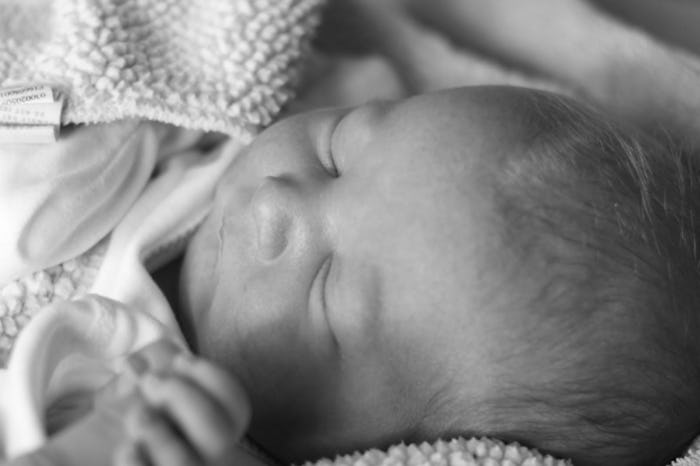Life

How The Birth Of My Son Helped Me Heal After My Miscarriages
When I stared at the positive pregnancy test that would eventually lead to my third son, I didn’t know whether to laugh or cry. My chest tightened, and I wished I could unsee it. Not knowing would have been better, I thought. I set the test on the bathroom counter. The second line was disconcertingly faint. I hugged my husband, forced a smile, and muttered something along the lines of, “We’ll see. I don’t want to get my hopes up.” I think I cried. I probably cried.
Being pregnant in the wake of two miscarriages was a confusing and often painful experience. While I wanted to be happy, while I was grateful, I was overwhelmed with an anxiety I couldn’t shake. There was also a part of me that felt guilty for moving on. As soon as it became clear that my pregnancy was viable, everyone was ready to celebrate while I was still trying to heal from the previous two losses. I wasn’t ready, though. I wasn’t ready to celebrate. I wasn’t even sure I was ready to be pregnant again, no matter how badly I wanted this baby. My miscarriages constantly shadowed over any joy I felt, because I still hadn’t fully processed the grief of those lost futures.
I had many people tell me that this was what was “always meant to be,” that my baby was “finally” ready. One friend told me that she had been consoled after a miscarriage in the notion that the souls that are meant to be ours will find us in their time. I can see how comfort could be found in the idea that there was nothing lost, that there was only ever one soul trying to break through into the world and now here it was. But that belief never resonated with me.
Something, someone, was lost when I miscarried. That person, that would-have-been future, died, and the realization that I was pregnant again did not change any of those facts. Those two babies were gone from us and from me forever, erased in every memory except my own, and it broke my heart.
It was around the time of my would-have-been due date that I came across an article about fetal cell migration, the phenomena of DNA and fetal cells crossing the placental barrier from fetus to mother and vice versa, mere weeks after conception. These fetal cells persist for decades, and can even help the mother combat disease throughout her life. The cells that cross the barrier live on in maternal blood and tissues, bone marrow, skin, even the brain — often until the end of the mother’s life.
The science was poetic and therapeutic. Our babies become a part of us, even the ones we never get to meet.
I found enormous comfort knowing that some piece of me had been taken with those babies, and some part of them would live on in me for the rest of my days. Metaphors and euphemisms aside, there was something physical, something quantifiable, that was left behind for me to keep in my heart, in my blood, in my brain. It was a profound connection that time would never take away from me.
Even more healing, however, was the fact that the DNA and cells from previous pregnancies could be carried over into subsequent pregnancies. It meant that my third son would not only carry the DNA and cells of myself and his father, and of his older brother and sister, but also possibly of the babies I miscarried. He would be born a beautiful patchwork of our family, carrying all of us in his tiny, perfect body. He would give me the chance to gaze upon the babies I never had the chance to hold in my arms.
My heart had never felt so healed as the day my third son was placed in my arms. I looked at him and felt whole again. He was the bridge over that gap where two babies were not born. He carried them into the world. He carried us all.
Often when I look at him, I am reminded of the babies that might have been, and I don’t feel so sad anymore. I mourn my losses daily, but in so many ways, I feel like they are still with me. I feel like he has filled in all the missing pieces of the puzzle that was left unfinished throughout my pregnancy. I imagine those cells, moving and living in both of us; still alive, still real, still here. There are large swaths of me in each of my children, and them in me, but it is my son that knits us all together, covering all my wounds.
Images Courtesy of Gemma Hartley (4)